Columbia Seminary
Publications
Our alumni are pastors, teachers, chaplains, CEOs and more. Many are writers! We celebrate our alumni authors and encourage you to engage with their work. If you would like to add your book to this list, please complete the form at the bottom of this page.

IDENTITY CODE: UNLOCKING THE POWER OF YOUR UNIQUE SELLING POINT
What makes you stand out in a crowded world? In a society where everyone is competing for attention, success doesn’t come from imitation – it comes from authenticity. Identity Code is a transformational guide to discovering, clarifying, and activating the one thing no one else can replicate: your uniqueness.
In this groundbreaking book, Oladotun Akinnubi (PDOT) reveals why your identity is more than personal – it is economical, generational, and global. Drawing from inspiring insights, real-world examples, and practical frameworks, he shows you how to turn your gifts, passions, and experiences into influence, income, and impact.
Inside Identity Code, you’ll learn how to:
• Differentiate between identity, reputation, and brand — and align them for maximum influence.
• Communicate your value with clarity and confidence, without arrogance.
• Transform your Unique Selling Point (USP) into a system of wealth and legacy.
• Build authenticity into your work, leadership, and relationships.
• Inspire the next generation by turning your brand story into a torch of impact.
Your identity is your economy. Your authenticity is your power. Your impact is your ultimate brand statement. It’s time to unlock your Identity Code.
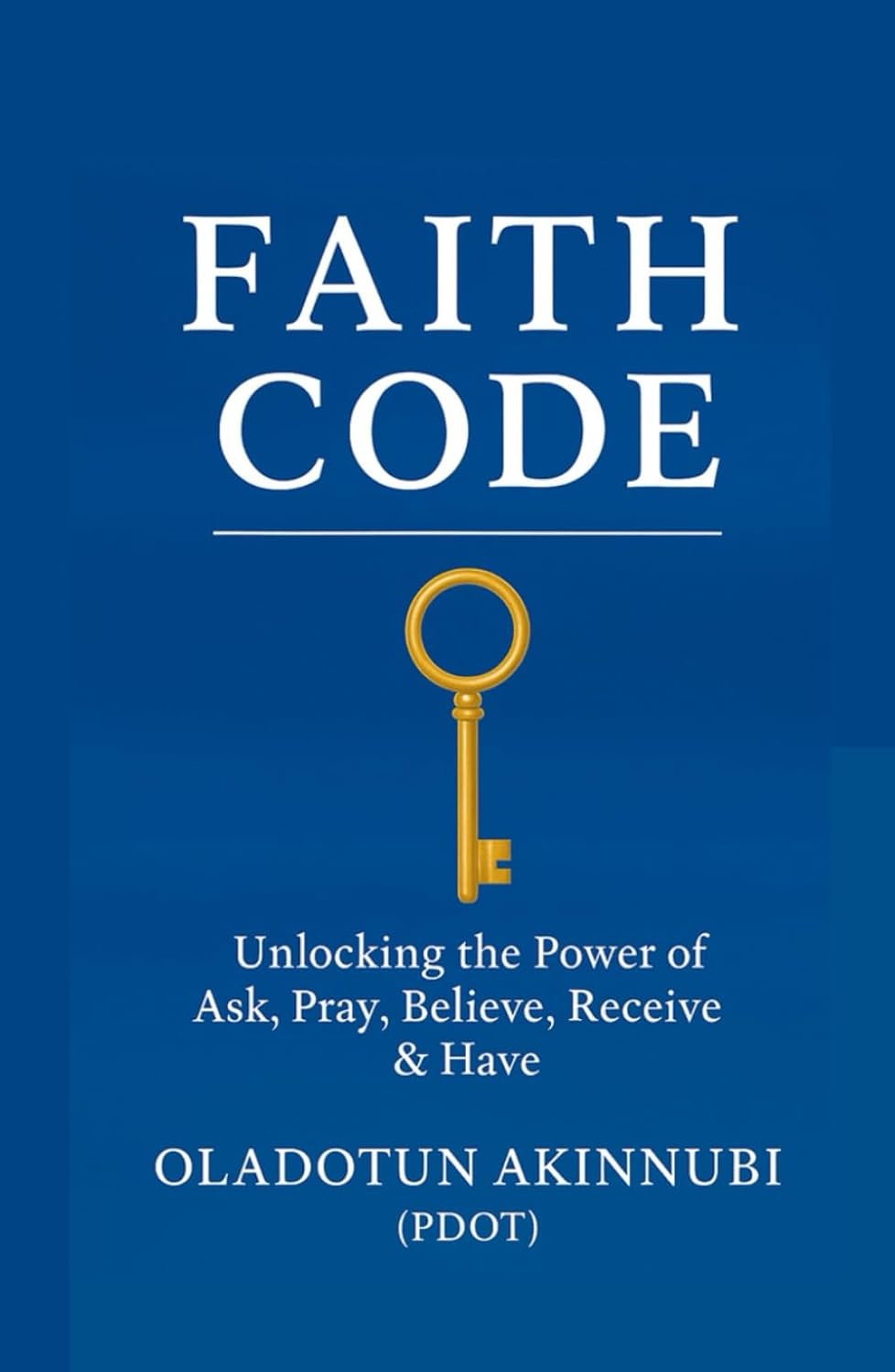
FAITH CODE: Unlocking the Power of Ask, Pray, Believe, Receive & Have
What if the life you’ve been praying for is closer than you think?What if victory, breakthrough, and transformation aren’t random blessings — but the result of aligning with a divine system that never fails?
In Faith Code, Oladotun Akinnubi (PDOT) reveals the timeless Kingdom blueprint encoded in one powerful verse of Scripture:
“Therefore I say to you, whatever things you ask when you pray, believe that you receive them, and you will have them.” — Mark 11:24 (NKJV)
This book breaks down the five spiritual principles that govern victorious living: Ask → Pray → Believe → Receive → Have.
With biblical depth, real-life stories, and practical steps, PDOT shows you how to turn faith from a last-minute panic button into a daily operating system that produces consistent results.
Inside you will discover how to:
• Ask with clarity, confidence, and covenant boldness.
• Pray as a lifestyle of intimacy, power, and breakthrough.
• Believe with unshakable confidence in God’s character and promises.
• Receive answers in your spirit before they show up in your hands.
• Walk in the reality of answered prayers — and steward them well.
More than a book — it’s a blueprint for limitless living.

Peace in a Mad Dog World (a spiritual memoir)
Warner Davis grew up in a region that is home to malarial mosquitoes, ravenous driver ants, prowling lions, 30-foot-long pythons, and highly venomous mambas. It is also a land of intertribal warfare, rebel occupations, and anarchic government. His father’s call to serve as a missionary in the Belgian Congo (now the Democratic Republic of the Congo) and his mother’s acceptance of that summons land them, his sister and him in tow, in a world of chaos. A suspenseful story unfolds of Warner’s dealing with fierce uncertainty. Light breaks through the darkness of despair when Warner reaches a conscious decision.
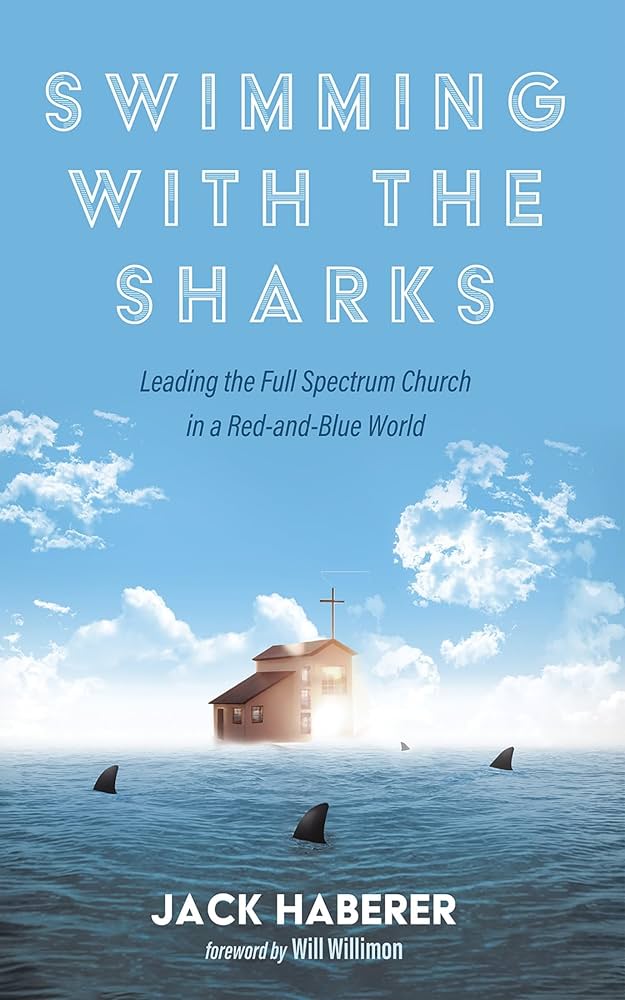
Swimming with the Sharks: Leading the Full Spectrum Church in a Red and Blue World
Building on a string of Haberer family harrowing encounters, Swimming with the Sharks presents a framework for addressing the sharks among us: those on the other side of the divide in American church life.
What is commonly characterized as the separation between blue progressives and red conservatives is shown to be a sellout to a political model and a false witness about the facts and faith on the ground. Believers do see things differently but not in simplistic, binary parties—rather, in an overlapping set of five understandings of Jesus’ heart and passion for God’s mission in the world. Each understanding is faithful. Every one is true. And yet, when huddling in their enclaves of agreement, like-minded folks become stupid, duped by their shared blind spots. All five living together become iron sharpening iron. And while we still may diverge on hot-button controversies, we do converge through theologically Trinitarian unity-in-diversity, and, indeed, we take flight via the Holy Spirit’s filling, empowering, gifting, calling, and commissioning of every believer in a culture, a movement, a full-spectrum revolution of mutual giftedness in mission.
Practical implications get spelled out (e.g., less pastor-driven, more member-driven; not “Focus, focus, focus,” but “Peripherate, peripherate, peripherate, peripherate), and then conclude with blunt explications: “Not all church consultants need to be ignored, but many do.”

O Lord, Hold Our Hands: How a Church Thrives in a Multicultural World
From Dr. Walter Bruggemann’s blurb: “It is a recurring, mostly unanswered question whether the Gospel is powerful enough to overcome the most durable ‘American Dilemma,’ that of racism. This books offers one concrete specific ‘Yes’ ot the question: Yes, the Gospel has power even in the face of racism. This books is part history of a local congregation, part testimony to the practice of faith, part manifesto of an evangelical response to racism. All of these complex elements converge in a passionate congregation led by its two passionate pastors. The story of Oakhurst Presbyterian Church can inform and energize others to face the same question about the same dilemma with the same evangelical innocence and courage: ‘God is breaking down these dividing walls!’ This book is an accessible, energizing read about real church practice that makes a difference.”
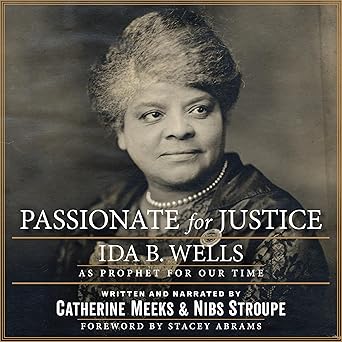
Passionate for Justice: Ida B.Wells as Prophet for Our Time
From Pulitzer Prize winner Leonard Pitts, “In ‘Passionate for Justice,’ this African-American woman and this white American man seek to stand together upon common ground, the revolutionary witness of an extraordinary and too-little-recalled black journalist and churchwoman. This would be an important book at any time, but it is critical for such a time as this.”

“She Made a Way: Mother and Me in a Deep South World”
This startlingly honest memoir is essential reading for white folk in the USA, and for anyone struggling to understand the intractable power of racism and white supremacy in our personal and social lives. At the heart of this book is the mystery of how the destructive forces of racism – and sexism and homphobia – can reign in the hearts and lives that are also full of genuine, life-giving familial love and loyalty. The book’s stark promise: transformative change is possible, but only as a lifelong journey accompanied by heartbreaking division and conflict.

Disorderly Parable Bible Study Series
Not your ordinary Bible Studies. Each book is a parable—a modern day story—wrapped around a biblical commentary. These stories will make you think about ancient scripture in new ways, provide insight into what is happening in the world today, surprise you with laughter as you catch a vision of the journey ahead, and energize you to live out your faith on paths you never expected taking.James in the Suburbs (Epistle of James), St. Francis and the Christian Life (Epistle to the Galatians), Dismantling Injustice (Song of Solomon).
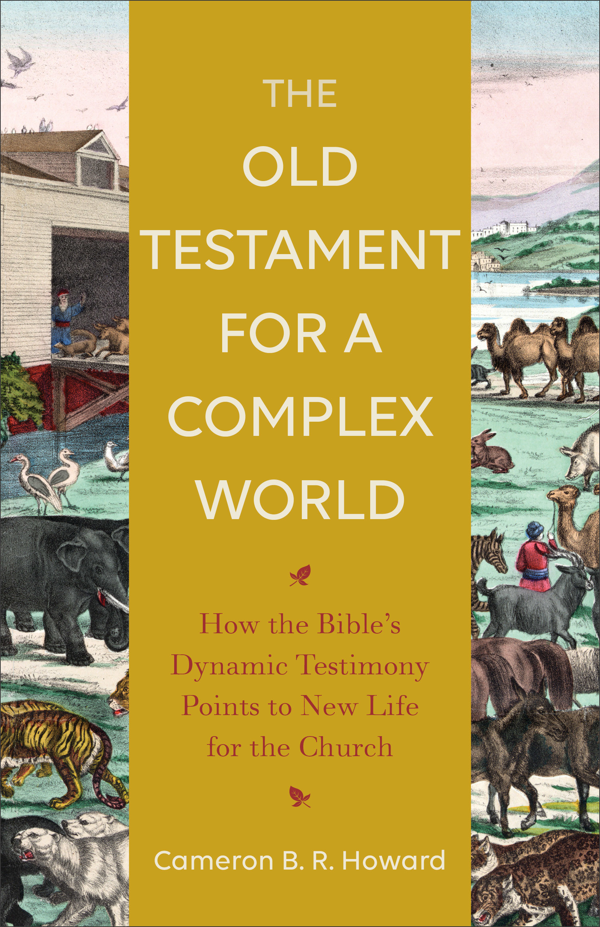
What if the Bible, which has come to us through a complex process, is just the resource we need to speak to the challenges of living as Christians in a complex world? In today’s era of significant cultural upheaval, studying the Old Testament can seem impractical or irrelevant. This book reclaims the Old Testament as a vital resource for today’s church, showing how critical study of these texts helps us understand the Bible as a dynamic testimony for our changing future.
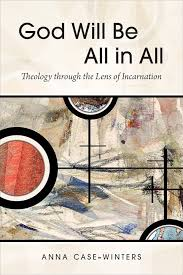
God Will be All in All: Theology Through the Lens of Incarnation
How side is the divine embrace? A central conviction of Christian faith is that “God is with us.” What does that really mean? One of the ways “God with us” manifests most clearly is when the “Word became flesh” in Jesus of Nazareth. Early Christians struggled to understand and articulate how it could be that “God was in Christ.” This book revisits central Christian convictions looking through the lens of incarnation. To do so reconfigures our understanding of who God is, the meaning of the Christ event, and who we are called to be as human beings. Provocative questions, both ancient and contemporary, are illumined afresh when we see the depth, the scope, and the implications of incarnation.

Sensual Faith: The Art of Coming Home to Your Body
An invitation for women to discover a healthier approach to spirituality and sexuality that centers pleasure rather than shame, from body- and sex-positive preacher and author Lyvonne Briggs
“Home is not an address. Home is where you feel safe. And your body is aching to be your home.” How you view your body and your sexuality is informed and strengthened by spiritual practices, but how many of us can say that religion has drawn us closer to our bodies? That’s because worship spaces that are intended to be spiritual safe houses have not historically been welcoming to our bodies, forcing us to leave our flesh at the door. This ideological amputation is at best a disservice and at worst a sin. The remedy? Radical self-hospitality.
In Sensual Faith, Lyvonne Briggs charts a path for us to practice spiritual wellness that aligns and harmonizes our bodies with pleasure and sexuality. By centering the rich traditions of ancient West African spirituality, Sensual Faith offers a radically inclusive model of companioning one’s self. Filled with wellness rituals, journal prompts, affirmations, and practices, Sensual Faith shows us how to celebrate our bodies as our very homes.
“Pleasure is your birthright,” writes Briggs, so whether it’s accepting your flesh, nurturing your intuition, learning the language of consent, or sumptuous self-care, let radical self-hospitality guide you to healthy sexuality.
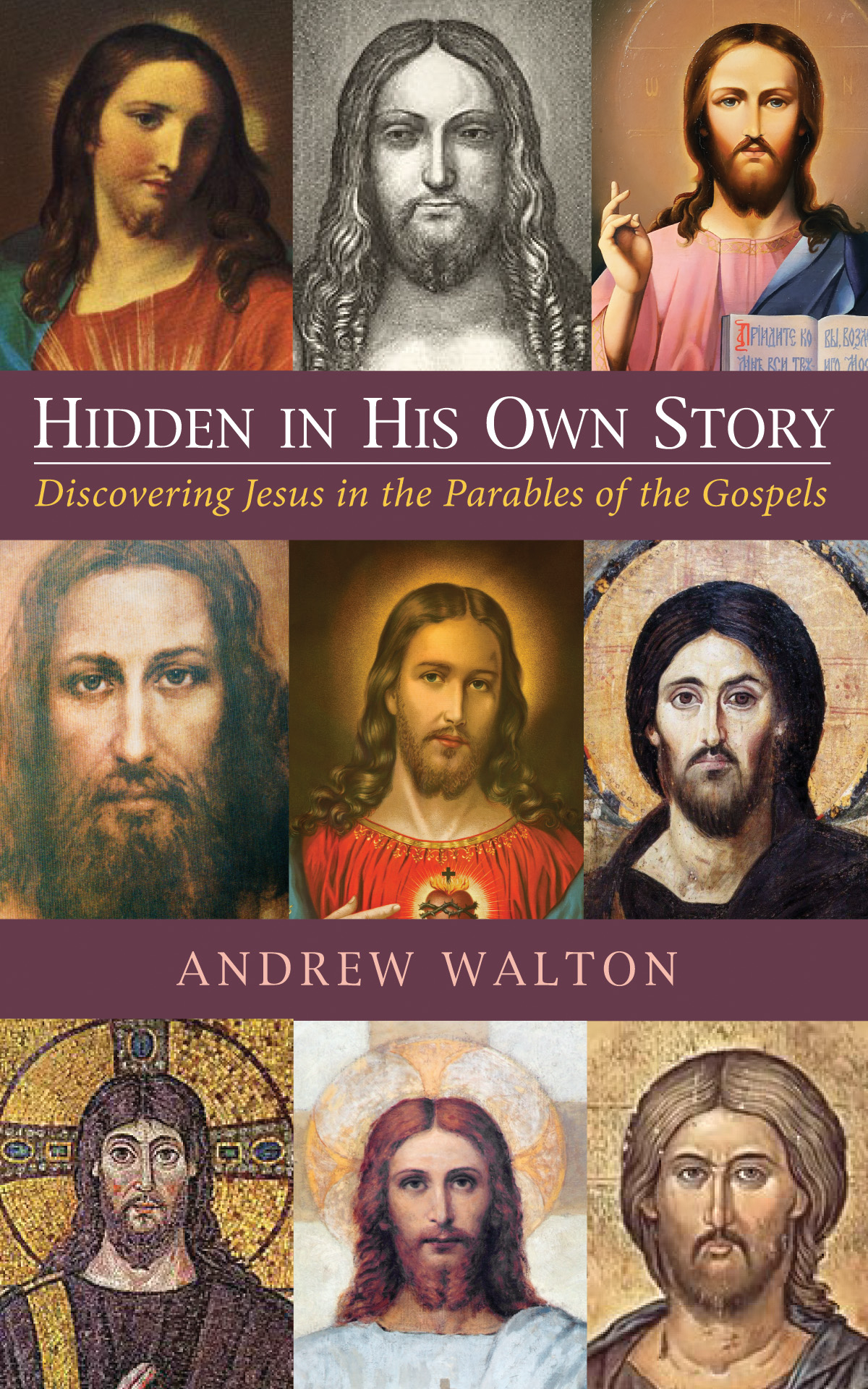
Hidden in His Own Story: Discovering Jesus in the Parables of the Gospels
Hidden in His Own Story is an invitation to reconsider and re-imagine both the humanity and divinity of Jesus. It is an invitation to people who are not familiar with the Bible stories and have only heard them through other sources, also to many who have rejected traditional interpretations of the stories as religious dogma, and to many people who are so steeped in the stories that they have become cliché.
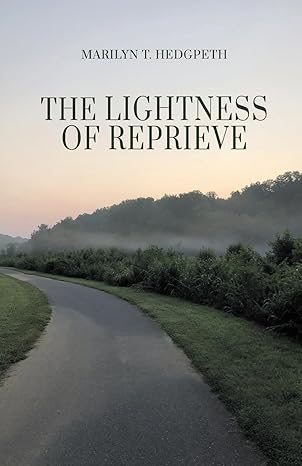
What does it mean to provide hope, encouragement, solace and joy to a dear friend who is staying with you during a clinical trial for pancreatic cancer? My faith informs me that no love is greater than friendship; to lay down one’s life for a friend. And yet, I think the power of friendship is generally undervalued by our culture. These poems arose from that context, both personal and societal, as I nurtured plants in my summer garden, ran daily errands in the car, and shared meals and laughter with our friend and her husband, always looking for signs of strength and hope for our days together.
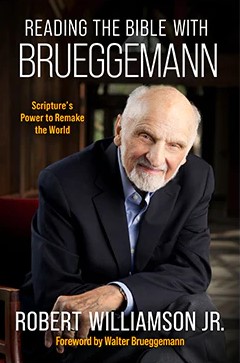
Reading the Bible with Brueggemann: Scripture’s Power to Remake the World
Let the Word speak freely.
Walter Brueggemann has been one of the most influential Old Testament theologians of the late twentieth and early twenty-first centuries. With an almost relentless pace, Brueggemann has significantly shaped biblical theology in the modern era, publishing 150 books and numerous articles. In his faithful and provocative interpretation, Brueggemann insists that the Bible has the power to remake the world, wresting the church’s imagination away from the military consumerism of the dominant culture and toward a radical vision of God’s reign, characterized by love of God and justice for the neighbor.
Reading the Bible with Brueggemann presents the development of Brueggemann’s thought through nine of his most significant works, from the foundational Prophetic Imagination to the magisterial Theology of the Old Testament and beyond. In a clear and readable style, Williamson allows scholars, pastors, and laypeople alike to read the Bible with Brueggemann and learn from and apply Brueggemann’s theological method.
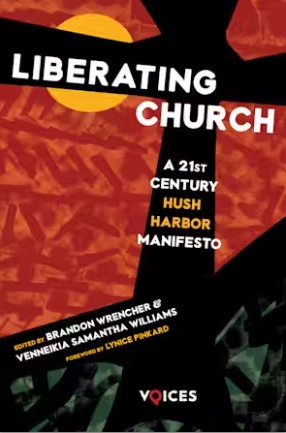
Liberating Church: A Twenty-First Century Hush Harbor Manifesto
While the North American church grapples with an eroding position of privilege in society, there is a liberating vision of church from the margins. This manifesto defines eight marks of liberating churches that were identified through research of antebellum hush harbors. Hush harbors were the covert gatherings of enslaved Africans to worship and organize for change free from the surveillance of plantation Christianity. Liberating Church explores how the marks of antebellum hush harbors are being lived out now in several faith communities. This book offers a guide for anyone who wants to embrace innovative models for building spaces of faith and activism with structural critique and spiritual power.
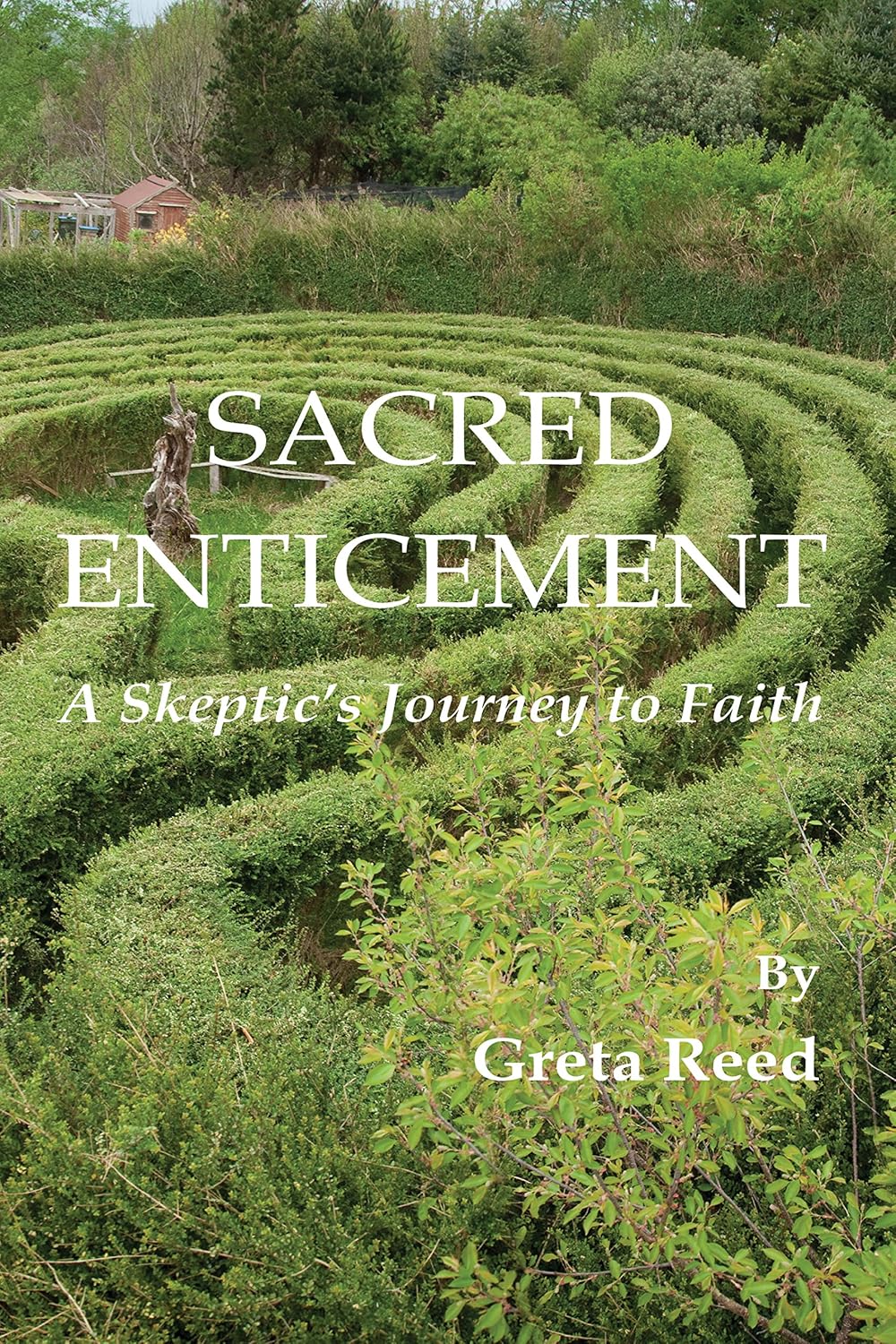
Sacred Enticement:Skeptic’s Journey to Faith
In “Sacred Enticement: A Skeptic’s Journey to Faith” author Greta Reed recounts the story of her own journey from teenage skeptic to philosopher to person of faith. On the way, she examines and critiques assumptions that undercut religious belief, encounters new ways of understanding the language of faith, draws nourishment from contemplative nuns, and uncovers a nuanced understanding of what lies at the heart of a faithful life. “In this fine book, Greta Reed challenges us to revisit the ancient questions and mysteries that continue to give rise to the religious impulse. If you’re wondering whether faith is viable in this kind of world, she invites us to consider that it may be the only way to vitality.” –Rev. Nibs Stroupe, Pastor Emeritus, Oakhurst Presbyterian Church
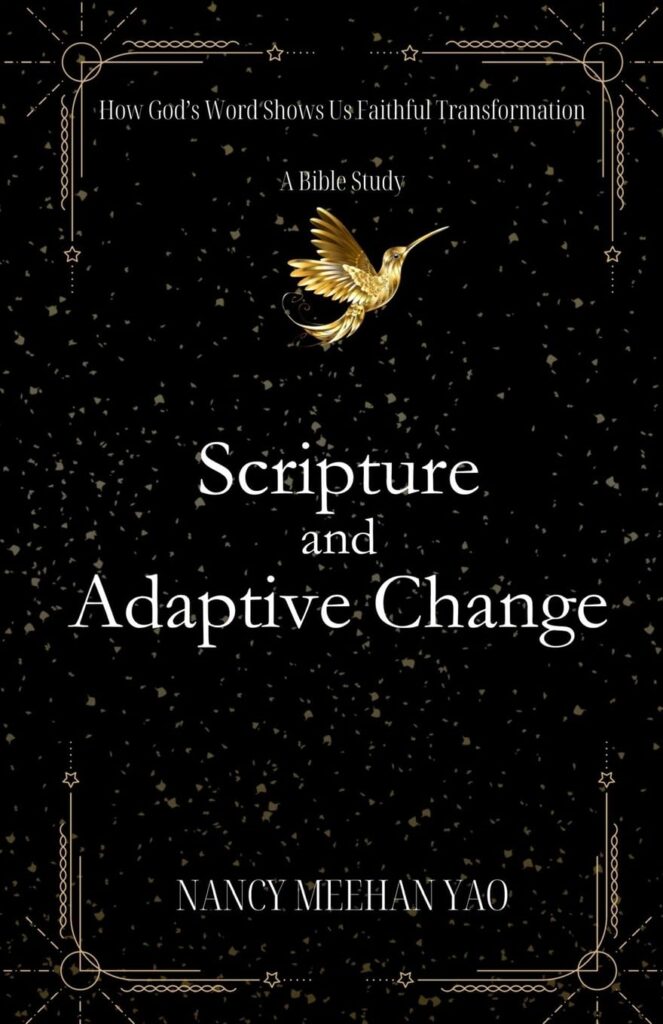
I will begin with a confession…
I don’t like change. I have clothes that I bought 3 decades ago, and still wear…because, well, why would I buy a new garment when I still have one that functions as a perfectly good T-shirt? I don’t like it when the store rearranges the bread aisle, and I can’t find the one item I went in to buy. I create a room arrangement of furniture I like and keep it that way for years.
I don’t like change.
But like it or not, we know that change happens. And we know as faith communities that the world outside our doors, our ministry context, has changed…even as we have kept on doing what we’ve always been doing.
Why, though, has the church not kept pace with change outside our doors? Urgency drives change, yet for the most part we have not felt any urgency to change, despite a multiple decades long decline.2 There is resistance to change, for change always involves risk and loss. Change requires energy many of us simply do not have.
Seeing the need for change in business more than twenty years ago, Ronald Heifetz and others at Harvard Business School began to use the terms “adaptive change” and “adaptive challenges.” Adaptive challenges are those problems which require new learning. They require tools, skills, and wisdom we do not yet have. The church is facing adaptive challenges all the time, on every front. Change is disruptive and difficult. This is true on a communal, personal, and on a neurobiological level. When we are learning new things, doing new things, we are literally re-wiring our brains.It is hard to know exactly what to do, but we are faced with the hard truth that doing what we have always been doing no longer works.
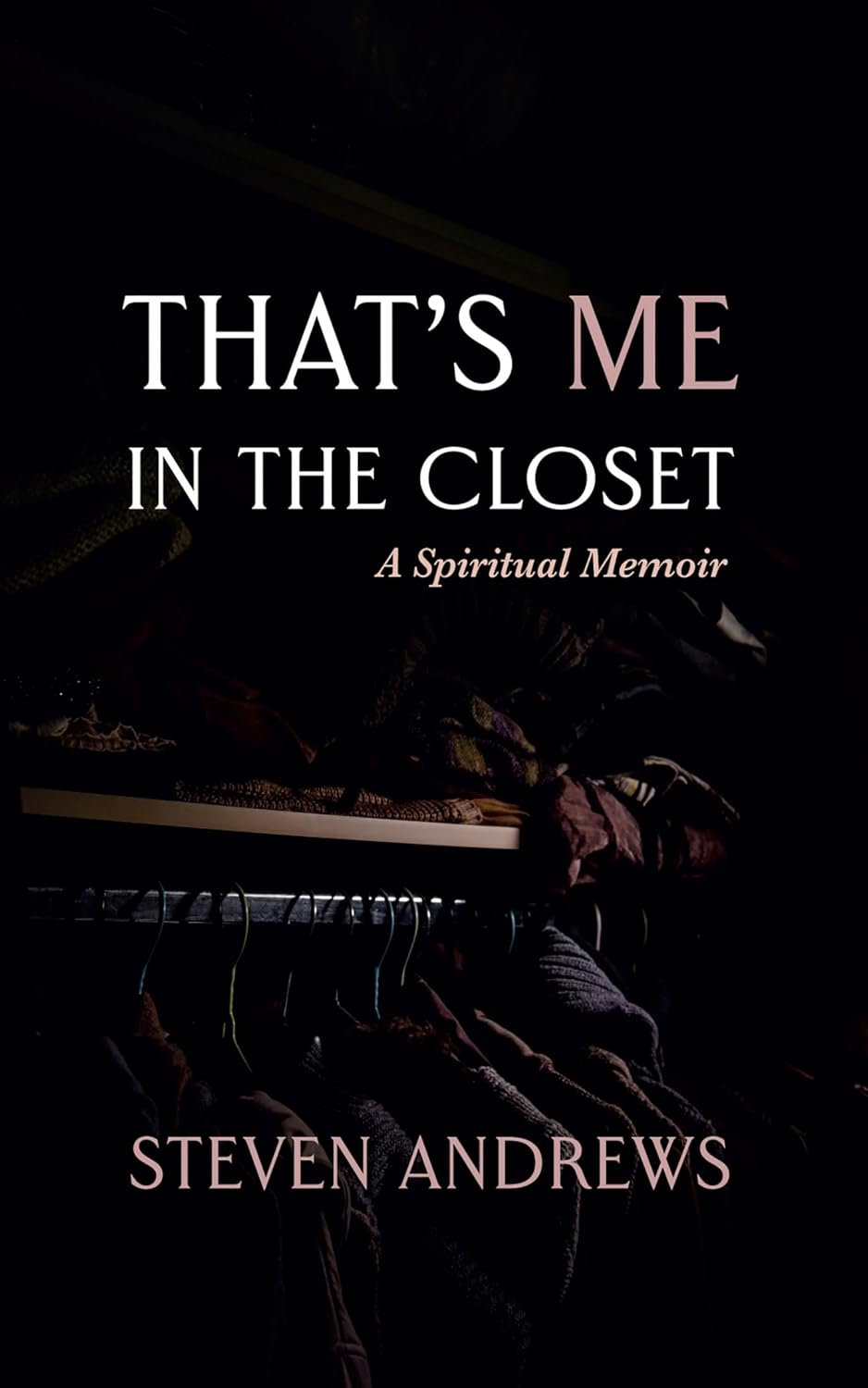
That’s Me in the Closet: A Spiritual Memoir
Steven Andrews grew up atheist. He’s bisexual. He was a foster child. He was abused and neglected. Nonetheless, God came to find him, and he became a college convert to Christianity. He is now a Presbyterian pastor, a nascent counselor, a husband, and a father. None of that was inevitable. This book is the story of how all that came to be. It’s a narrative of vulnerability and authenticity. It’s a journey through evangelism, queer identity, and healing from trauma. It’s a plea for the future of the mainline church. Most of all, it’s one person sharing their story and encouraging you to share your own—as we all strive to be the people God made us to be.
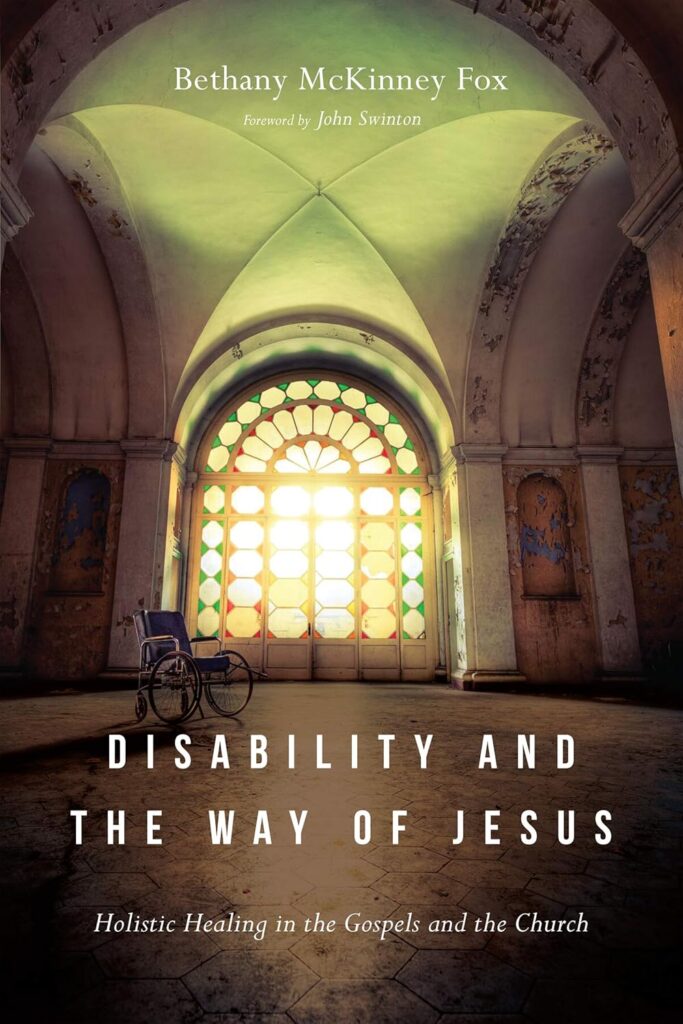
Disability and the Way of Jesus: Holistic Healing in the Gospels and the Church
What does healing mean for people with disabilities?The Gospels are filled with accounts of Jesus offering physical healing. But even as churches today seek to follow the way of Jesus, people with disabilities all too often experience the very opposite of healing and life-giving community: exclusion, judgment, barriers. Misinterpretation and misapplication of biblical healing narratives can do great damage, yet those who take the Bible seriously mustn’t avoid these passages either.Bethany McKinney Fox believes that Christian communities are better off when people with disabilities are an integral part of our common life. In Disability and the Way of Jesus, she considers how the stories of Jesus’ healings can guide us toward mutual thriving.How did Jesus’ original audience understand his works of healing, and how should we relate to these texts today? After examining the healing narratives in their biblical and cultural contexts, Fox considers perspectives from medical doctors, disability scholars, and pastors to more fully understand what Jesus does as he heals and how he points the way for relationships with people with disabilities. Personal reflections from Christians with disabilities are featured throughout the book, which concludes with suggestions for concrete practices adaptable to a variety of church settings.Bridging biblical studies, ethics, and disability studies with the work of practitioners, Fox provides a unique resource that is both theologically grounded and winsomely practical. Disability and the Way of Jesus provides new lenses on holistic healing for scholars, laypeople, and ministry leaders who care about welcoming all people as Jesus would.

How Lonely Sits the City: a Novel
In the aftermath of Hurricane Katrina in 2005, New Orleans journalist Maggie McBride and her housekeeper Eloise Jackson find themselves living in the empty city in a time nothing has prepared them for. Together they must learn to navigate a harsh new reality as they face personal tragedies and challenges beyond their worst nightmares. How Lonely Sits the City deals with issues of race, loss, betrayal, faith, and love. Originally published in 2019 as The New Normal, an honorable mention award winner in the Writer’s Digest Self-Published Book Awards.
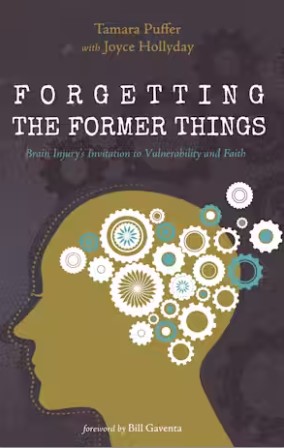
Forgetting the Former Things: Brain Injury’s Invitation to Vulnerability and Faith
In August 1996 Tamara Puffer was a young, newly married violinist-turned-pastor serving a large suburban church. Her growing work with people living on Atlanta’s streets was beginning to reshape her theology and her calling, but a serious car accident derailed her carefully planned career path. Forgetting the Former Things is a rare tapestry of first-person faith journey woven with gritty theological reflection and persistent hope. Puffer writes honestly, poignantly, and often humorously about her efforts to accept limitations and to reimagine her life under radically altered circumstances. She finds solace in the stories of biblical women as she also wrestles with negative images of disability in Scripture. She embraces her self-described role as a “minister of vulnerability” in this troubling national moment–as jobs, healthcare, and affordable housing are evaporating for so many, as countless people feel terrorized by discrimination or the threat of deportation–boldly casting her lot with others whose marginalization cuts deeper. At a time when traumatic brain injury is in the national spotlight, and many families, churches, and communities seek deeper understanding, Tamara Puffer provides in these pages an insightful, inspiring, and much-needed gift.
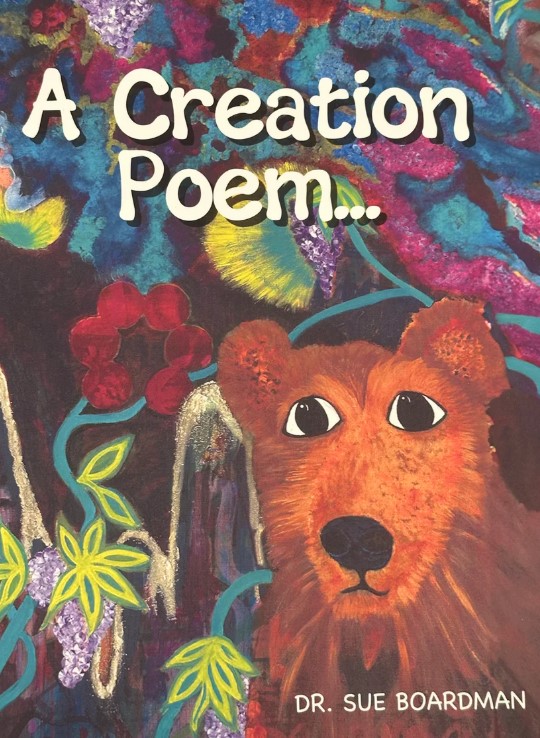
A Creation Poem… An Ancient Story of Beginnings for Today’s Children and the Adults Who Love Them.
One of the best things I ever learned came from the late Dr. H. Stephen Glenn. Steve said that, “if a teenaged child has 5 adults who will listen to them, take them seriously, and not shame or blame them for their questions, that child is practically immune from ever attempting suicide.
Here’s the thing… the world is a whole lot more complicated now than ever before and we can’t wait until they’re teenagers to start!!!
A Creation Poem… lets you start where they are! With wonder!!! This intentionally inclusive book is a mystical poem with artwork created to draw them into a place where THEY belong… and you, with them!
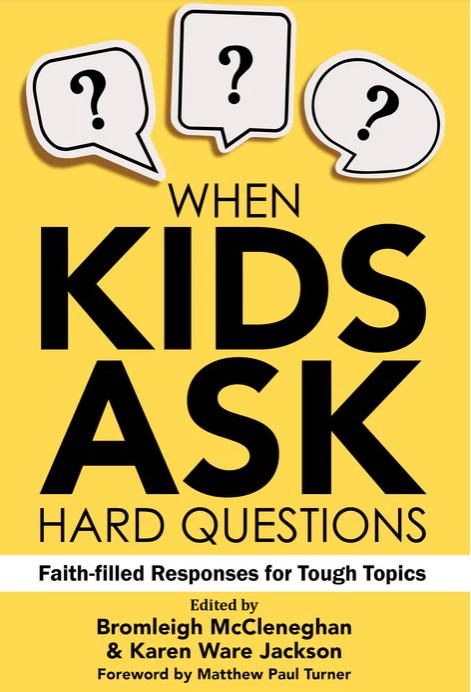
When Kids Ask Hard Questions: Faith-filled Responses for Tough Topics
When your kids ask the big questions, what will you say?
Our kids are wrestling with harder and more complex issues than ever before. How do we respond to their questions thoughtfully, honestly, faithfully? In this collection from more than 30 progressive young parents, pastors, and experts, listen in on responses to some of today’s toughest topics – from gender identity, racism, bullying, suicide, and gun violence, to divorce, blended families, money, technology, faith, and more – and learn how to craft your own faithful answers.
When Kids Ask Hard Questions models thoughtful and faithful responses to the big questions and shares how to create safe spaces for the important, on-going conversations with the kids in your life.
While the responses are aimed at children aged 5-12, many chapters include suggestions for pre-school and older kids/teens as well. Each essay includes a resource list for further exploration.
Download the FREE Study Guide for Parents, Caregivers, and Small Groups
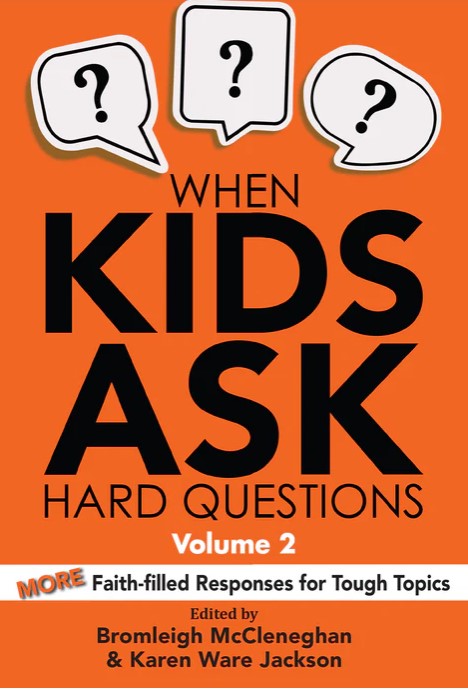
When Kids Ask Hard Questions, Volume 2: More Faith-filled Responses for Tough Topics
From the creators of When Kids Ask Hard Questions comes MORE questions—and thank goodness, responses!—on today’s tough topics. In an increasingly complex world, children deserve thoughtful responses informed by our progressive faith values. In this second volume for parents, teachers, and faith leaders, respected experts, pastors, and parents address more than two dozen tough topics, offering theological perspectives and suggestions for comforting and spiritually guiding children.
Topics include:
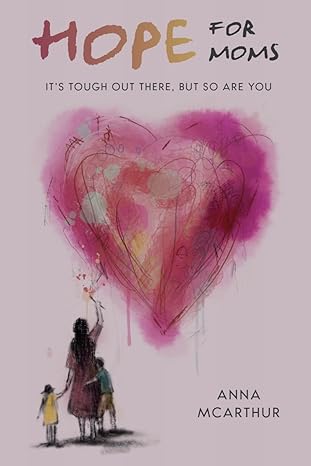
Hope for Moms: It’s Tough Out There, but So Are You
Hi there, love. It’s tough out there, isn’t it?
Many of us did everything we could to prepare for becoming moms, but there just wasn’t any way to know what might lie ahead. Most of us have, at one point or another, looked around and wondered if we are alone in our parenting challenges.
Hope for Moms offers a heartfelt guide for mothers navigating both the joys and heartbreak of being a mom, sharing Anna McArthur’s personal journey through parenting difficulties such as learning disabilities, LGBTQ+ identities, and adoption. Structured around a triage plan that helped the author prioritize her family’s needs, it includes practical insights, quotes, and reflection questions to support moms in their journey of resilience and soul care. With gentleness and humor, McArthur provides reassurance to mothers, reminding them they have the strength to not only survive motherhood, but thrive.
If you’re a mom who feels overwhelmed by the curveballs life has thrown your way, you aren’t alone—yes, it’s tough out there, but so are you!
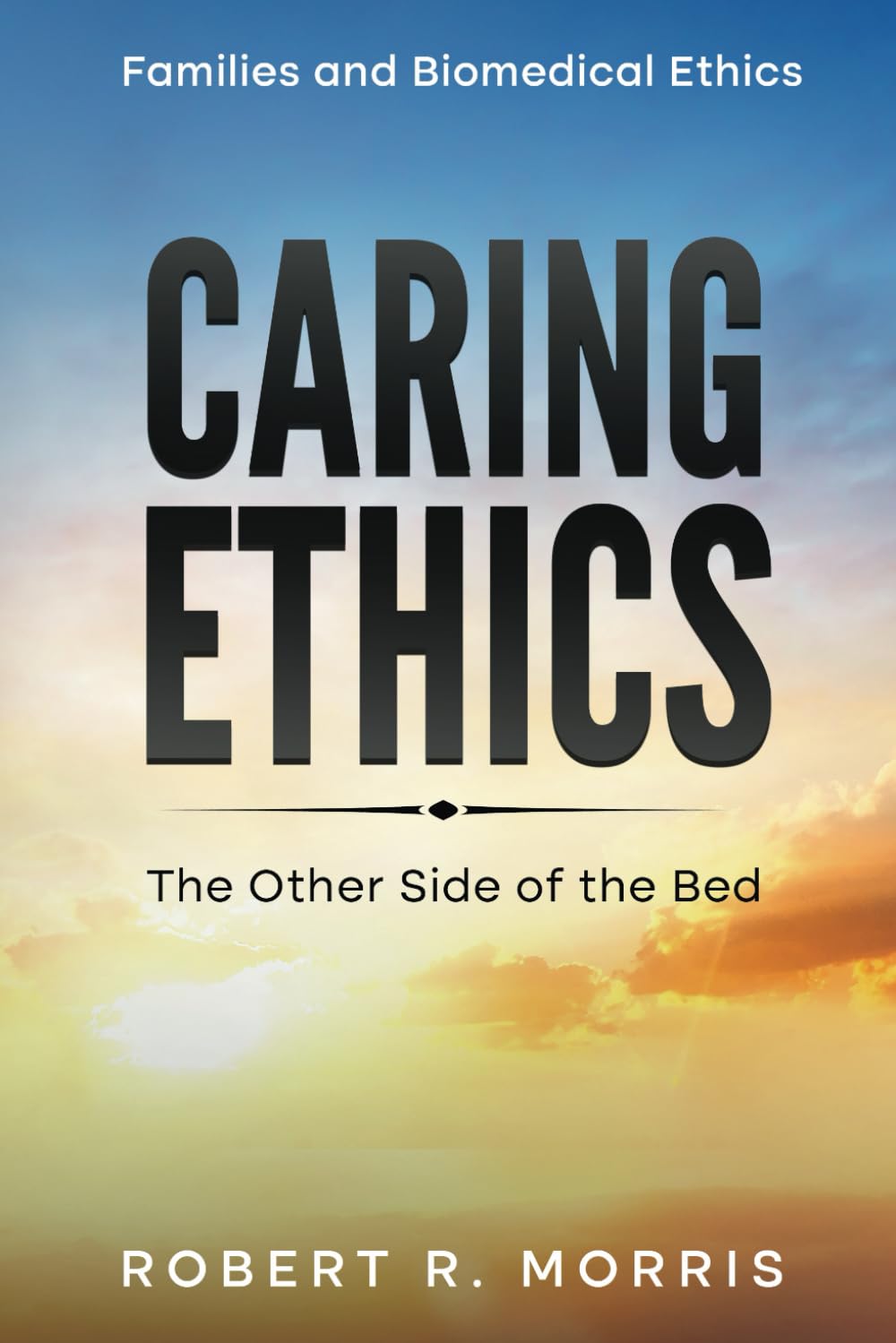
Caring Ethics: The Other Side of the Bed
In Caring Ethics, author Robert R. Morris gently presents what if scenarios no one wants or likes to think about, but which we all eventually confront. How to decide how long to keep a parent on a ventilator? Should I donate a child’s organs and tissues? Should I be making decisions for my friend’s estranged family? Through real world experiences readers will begin to wrap their minds and hearts around the unimaginable paths others have traveled and begin to gather an understanding of their own set of answers and values.
The book is divided into sections on Attachment, Anxiety, Agendas, Anger, Authority, It is filled with people grappling with these issues. Each section concludes with a series of questions meant to encourage and motivate the reader to consider options. Fair warning: there are no clear cut answers here. Which is intentional. Feelings can teach us because complexity often spurs deeper learning. This book is not a how to manual; instead it fosters the readers thinking, about values, opinions, and perspective, which in the end, may make us all more forgiving, understanding and helpful people.